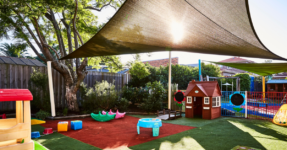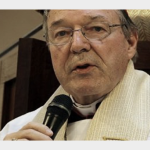Working With Children: Should Better Checks Be Undertaken?

Parents around Australia are reeling from the news that the Australian Federal Police (AFP) has charged a former childcare worker from the Gold Coast in Queensland with more than 1600 child sexual offences against 91 children both in Australia and overseas over a 15 year period.
The charges
The 45-year old Australian man has been charged with a total of 1623 offences, including 136 counts of rape and 110 of sexual intercourse with a child under the age of 10 years.
The accused man has been in prison since August last year, when the Australian Federal Police arrested and charged him with two counts of making child exploitation material and one count of using a carriage service for child abuse material.
But police allege they found further evidence of child sexual abuse offences recorded on his phone at the time of arrest, and launched another investigation.
Australia and overseas
The AFP has now finalised the charges against the man over offences alleged to have been committed at 10 childcare centres in Brisbane between 2007 and 2013, and 2018 to 2022, in overseas locations between 2013 and 2014, and in Sydney between 2014 and 2017.
According to the AFP, all of the parents of the Australian children have been notified.
The AFP is currently still working with international authorities to identify four children from overseas.
Some of the children who were allegedly abused are now over the age of 18 years.
All of the offences were allegedly committed against young girls.
The horrific allegations have also led to a number of very serious questions about the robustness of the process and systems involved in background checks for people working with children, considering that the man was able to work around children and commit offences while doing so, for a period of fifteen years, completely unnoticed.
Failure to implement Blue Card reforms
Queensland, in comparison with other states, has a comprehensive regime for conducting ‘working with children’ checks.
However, this is not the first time that someone who is a fully fledged Blue Card holder, approved for working with children, has committed horrific offences against a young person in their care.
Twelve year old Tiahleigh Palmer, was killed in 2015 by her foster-father/carer who had a prior criminal record although he had been cleared, along with his wife, to run a daycare business and to be a foster carer.
Both Rick and Julene Palmer, and their two sons each held Blue Cards. Each of them were charged in relation to Tialeigh’s death.
It has now come to light that recommended reforms suggested after Tialeigh’s death – which have not been put in place – could have provided a way to flag early concerns surrounding the man now accused of 1623 child sex offences.
The man was investigated by Queensland Police in 2021 and 2022 but there was “insufficient evidence” to charge him.
According to QPS, without sufficient evidence, the matter “did not meet the threshold under section 305 of the Working with Children (Risk Management and Screening) Act 2000 to be referred to Blue Card Services.”
However, the Queensland State Government was advised to lower this threshold as part of 81 recommendations made by the Queensland Family and Child Commission after the murder of Tialeigh Palmer.
Better protections for Children
Since the Royal Commission into Institutional Responses to Child Sexual Abuse, the New south Wales Government has introduced a range of law reforms – including the introduction of a number of new offences including failure to reduce exposure or remove a child or protect a child at risk of abuse, sexual touching, failure to report child abuse to police, ongoing or persistent abuse, child grooming and grooming offences relating to grooming parents and carers to gain access to a child.
These are to be commended because they make it easier to prosecute child sex offences.
However, as any victim survivor or trauma therapist will attest, child sexual abuse of any nature and severity can result in life-long physical, psychological and emotional damage, so there needs to be considerable focus on prevention and better protections for children.
What is a Working with Children Check in New South Wales?
Currently in New South Wales, the onus is on service providers (employers) to ‘ensure that they have systems in place to regularly check the currency and validity of Working With Children Checks (WWCCs) for educators, volunteers and other staff.’
The New South Wales Department of Education website defines a Working With Children Check as the “assessment of a person’s ability to work safely with children based on any known incidents that indicate the person poses a risk of harm.”
The Working with Children Check involves a National Police Check (criminal history record check) and a review of reportable workplace misconduct. If it is granted, a WWCC is valid for 5 years. According to the NSW government, ”applicants are continuously monitored’, although the details of how this occurs are not explained.
A WWCC is also required for anyone employed by NSW Health.
A person under the age of 18 is exempt from holding a Working With Children Check. This means there is no restriction on engaging a staff member, volunteer or student who is under 18 years old in a service, but anyone under the age of 18 is not to be left unsupervised with children and needs to be accompanied by a more senior person with the appropriate documentation.







